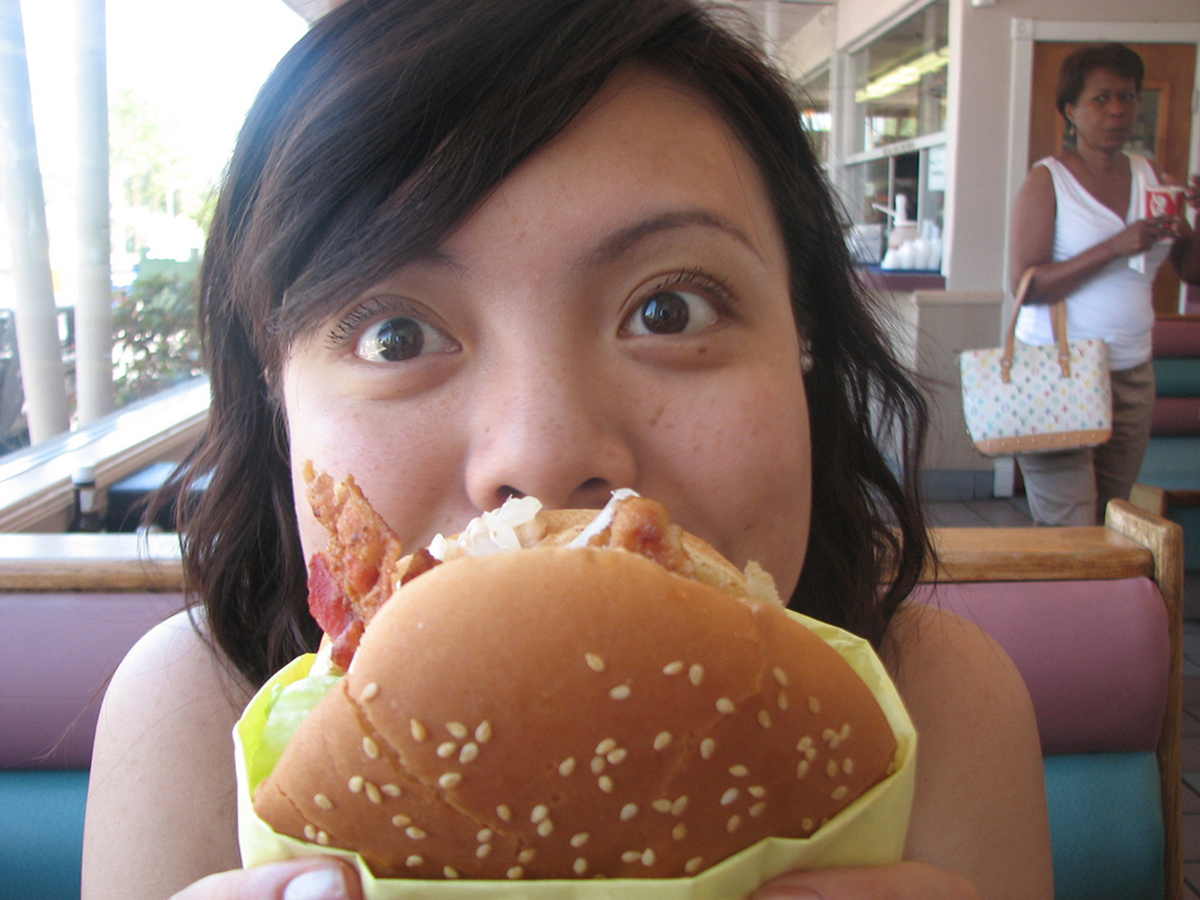Certain foods can initiate neural activity similar to that seen in addicts
Food addiction may be one of the causes behind the difficulty experienced in losing weight, according to Ashley Gearhardt of Yale University, Connecticut.

In a report published in the Archives of General Psychiatry, Gearhardt and her colleagues have studied the response of brain in response to visual stimulation by mouth watering food. The brain activity was compared with the help of functional magnetic resonance imaging after the women taking part in the study were offered a chocolate milkshake or a tasteless solution. Around 48 women ranging from lean to obese were part of the study. It was seen that the sight of a tasty milkshake activated the anterior cingulate cortex and the medial orbito-frontal cortex in the brain. These are the same areas which show an enhanced activity in the brain of an addict after seeing drugs. This activity was even more predominant in women having an addiction for a particular food.
One of the important conclusions of this study is that people may be driven to compulsive food consumption because of the addictive qualities of certain foods. This, in turn, may be a major reason contributing to obesity. Also, people who are already obese, may find it difficult to shed weight as they are addicted to certain foods and find it hard to keep away from them.
Food companies may be deliberately designing foods to make them addictive
Obesity, along with the plethora of diseases that it causes, like cardiovascular diseases, diabetes, hypertension and cancer, etc has been on a rise ever since processed, packaged and junk food have become so much a part of our lives. The food companies spend a large part of their budgets on advertising with the sole aim of making us believe that their food is healthy.
Now, many experts feel that the food companies may be deliberately designing foods to make them addictive. These foods contain a lot of refined carbohydrates, trans fat, cholesterol, dietary omega-6 fatty acids, salt and many artificial chemicals, dyes and preservatives. They may be engineered to activate our taste buds and certain areas of brain, so as to make them addictive.
These food companies have been luring unsuspecting customers, especially children, through billboards and electronic media, showcasing their tempting treats.
Read More: Is food addictive?
It is only now that we have come to know about the addictive properties of these foods. We now know that the development and maintenance of obesity may be partly due to an addictive process. This process leads to an elevated activation of the neuronal regions of brain associated with reward circuitry in response to tempting food, and a decrease in the neuronal activity of the inhibitory regions of brain in response to excessive food intake.
Foods high in sugar, fat, and salt are particularly likely to cause addictive-like eating behaviors. These ingredients can activate the brain's reward system in a similar way to drugs like cocaine or heroin, releasing neurotransmitters like dopamine. This release can lead to feelings of pleasure and satisfaction, encouraging repeated consumption.
Foods that are highly processed often have intense flavors and are quickly absorbed into the bloodstream. This rapid absorption can lead to a quick and intense release of dopamine in the brain, creating a strong desire to experience that sensation again.
Similar to addictive substances, individuals may develop a tolerance to these foods, requiring more to achieve the same pleasurable effect. Withdrawal symptoms, such as mood swings, irritability, or cravings, can occur when consumption of these foods is reduced.
Realizing the big challenge that obesity poses to the health care system of the U.S., it may soon be mandatory for all restaurants to add calorie counts to their menus.
- Ashley N. Gearhardt, MS, MPhil, Sonja Yokum, PhD, Patrick T. Orr, MS, MPhil, Eric Stice, PhD, William R. Corbin, PhD, Kelly D. Brownell, PhD. Neural Correlates of Food Addiction. Arch Gen Psychiatry. Published online April 4, 2011. doi:10.1001/archgenpsychiatry.2011.32
- Neal D. Barnard, M.D.. Big Food About to Lose Its Biggest Defense: Food Really Is Addictive. PCRM. News and medica center. May, 2003
- Photo courtesy of Micah Sittig by Flickr : www.flickr.com/photos/msittig/189821844/

